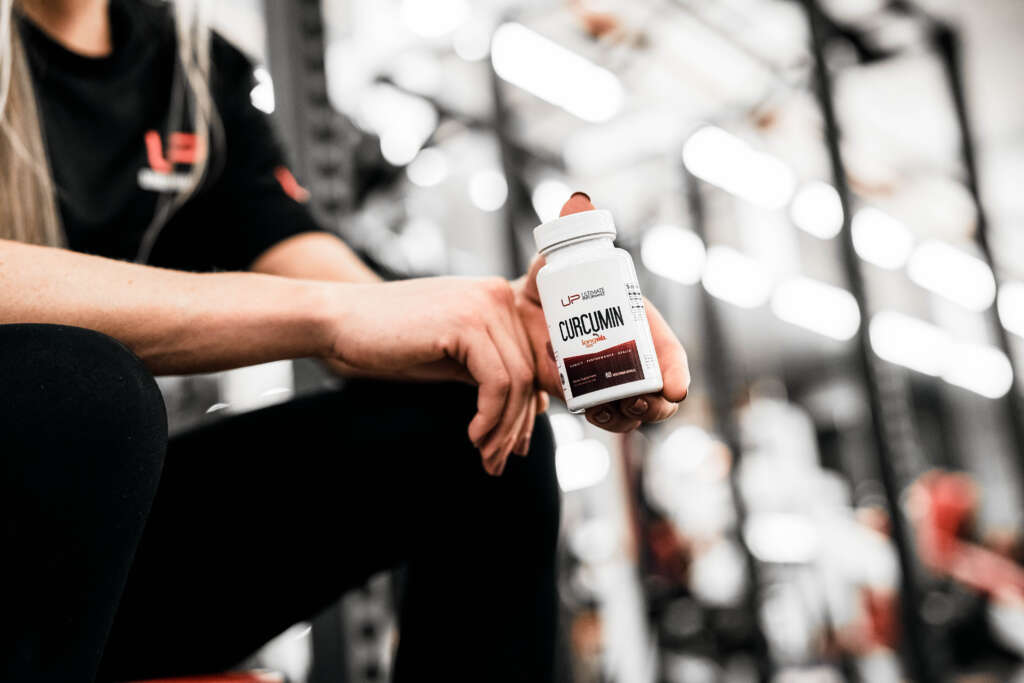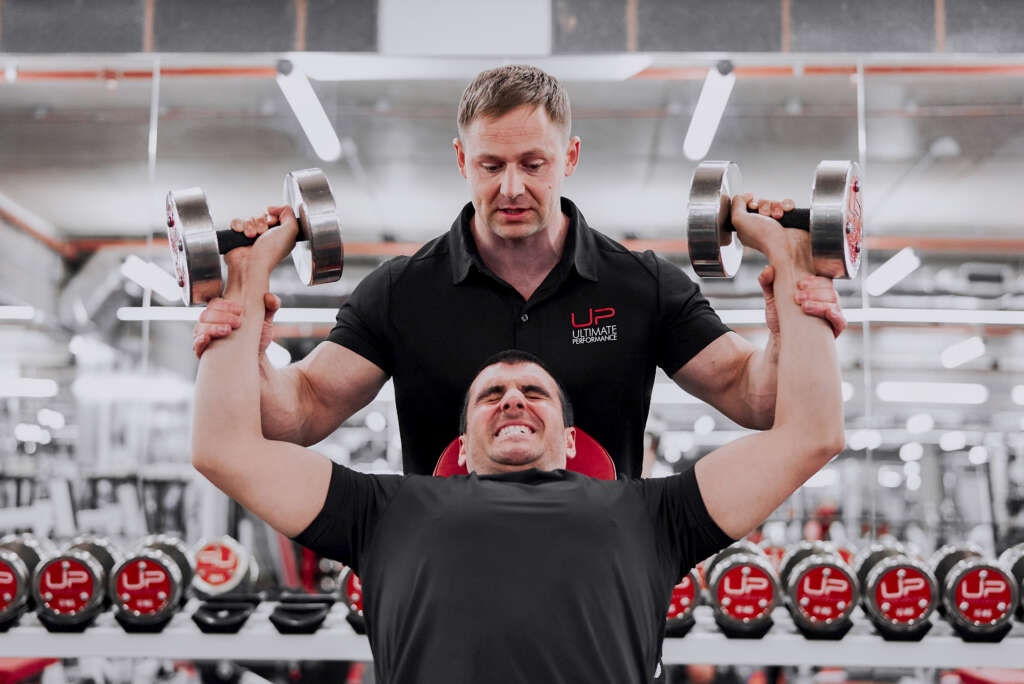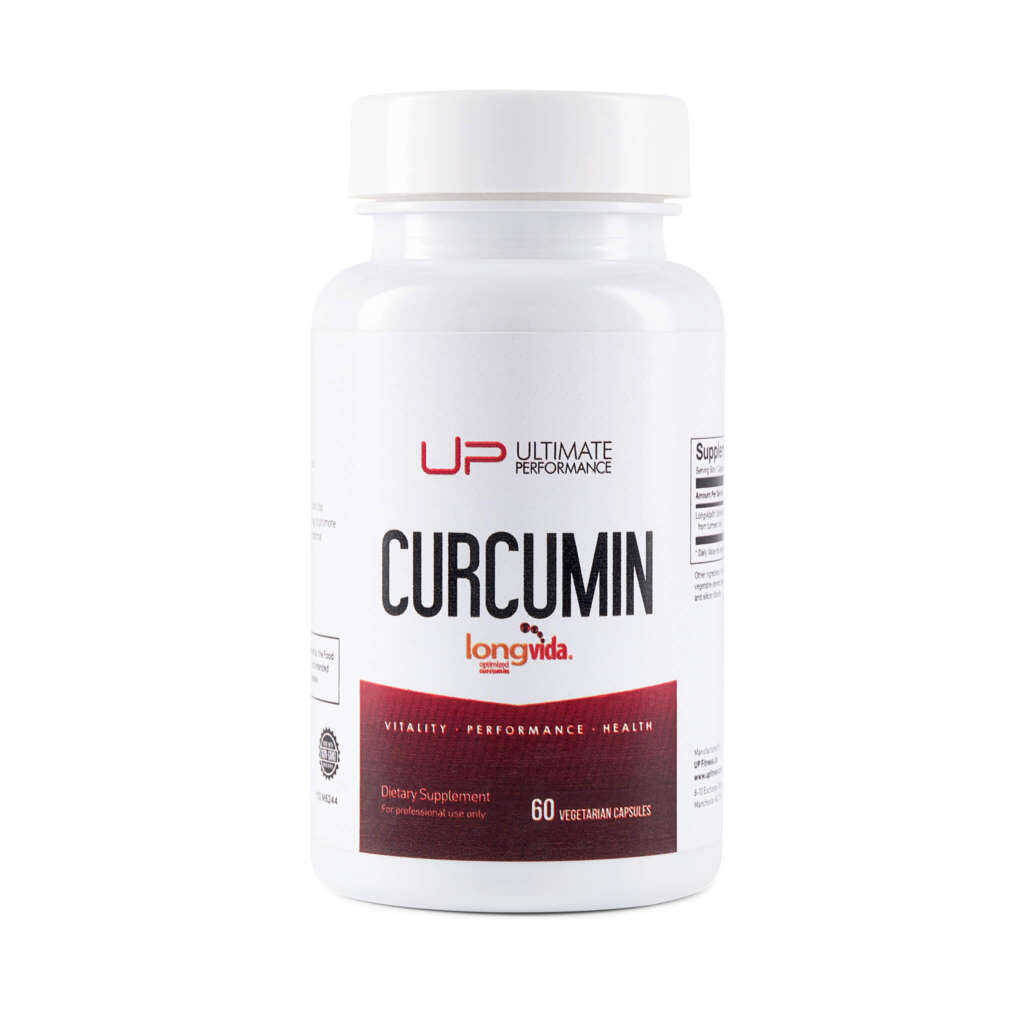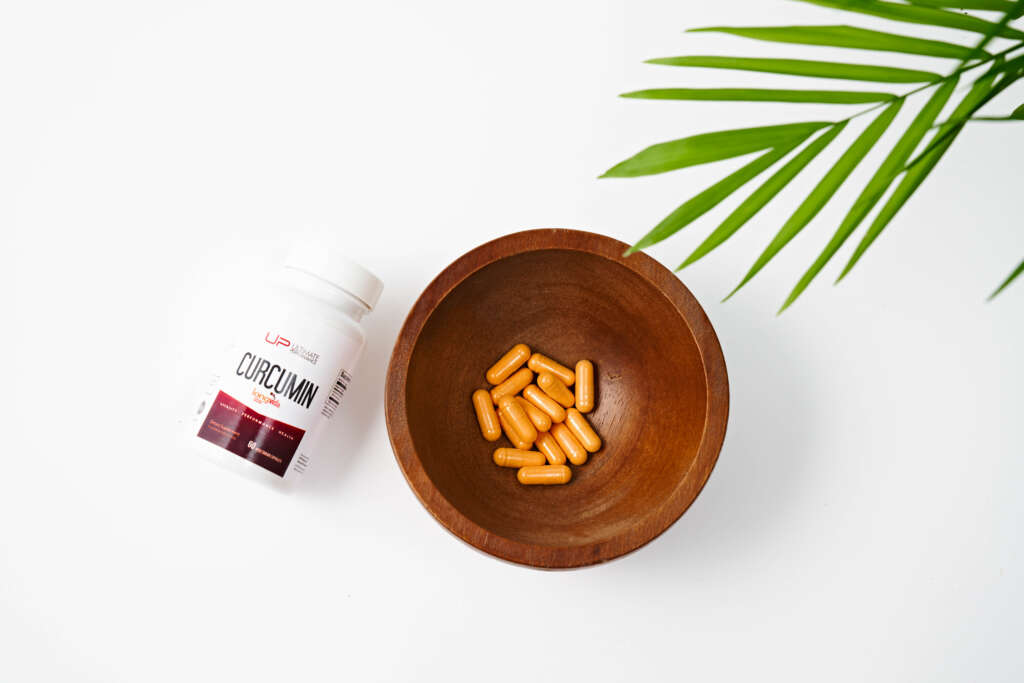Do you ever wonder why you struggle to lose fat no matter what you try? Or why you can’t keep a lid on your appetite and rein in your expanding waistline?
The answer might lie in a health condition that is little-known outside scientific circles but has exploded over the past 30 years causing untold damage to our collective health.
‘Chronic inflammation’ is an insidious slow-burn health problem driven by our unhealthy modern lifestyle – and now with nearly 70% of adults in the UK overweight or obese, it is affecting more and more of us.
Its causes are diverse – obesity, poor diet, allergies, environmental toxins, stress, alcohol, smoking, sleep loss, and poor gut health.
But its effects are dramatic. Short-term it can make losing weight and managing your appetite more difficult.
Long-term, if left unchecked, it can lead to a range of deadly health conditions like heart disease, diabetes, cancer, as well as arthritis and can be involved in bowel diseases like Crohn’s disease and ulcerative colitis.
Diet, exercise and lifestyle change are vital to reverse this – but there’s also a powerful supplement derived from turmeric that can help.
Curcumin is shown in thousands of research studies to help improve inflammation.
Joe Halstead, Head of Research and Development at Ultimate Performance, explains why curcumin is so effective for chronic inflammation and how our clients use it to speed up fat loss and improve health.

Q: What does curcumin do?
Curcumin is a supplement that basically deals with modern lifestyle issues.
The food we eat, and our unhealthy lifestyles cause low-level inflammation for a lot of people, especially men.
Gaining fat, eating junk food, or even just not digesting food well because of a mild intolerance or allergy – it all leads to inflammation.
Many people have inflamed guts too. So anyone who has a little bit of a belly will typically be inflamed. This might be because of a specific food, or just that they eat too much.
Q: Why is this inflammation a problem?
Chronic inflammation, whether it’s localised to your gut or systemic across the whole body, is a big problem.
However, doctors or pharmaceutical companies won’t touch it because it’s not an ‘urgent’ problem.
You don’t go to a doctor because you’re generally feeling unhealthy – you go when there’s something specific wrong.
But inflammation is going to make a lot of ‘specific’ problems happen sooner and get worse over time – like heart problems.
But because none of these are short-term, the impact of inflammation never gets addressed.

Q: What effect does this have on your body long term?
When the inflammation is chronic and systemic, your heart and every other organ in your body will be inflamed.
Chronic inflammation, and the hypoxia (reduced oxygen supply) that comes along with it, causes your body to lay down connective tissue. Connective tissue where it’s not supposed to be is called scar tissue and obviously that is a problem.
So imagine your heart is getting full of connective tissue. Your heart is supposed to be elastic. But connective tissue is the opposite of elastic. As it builds up over time, your heart is going to have to work a lot harder to pump the same amount of blood.
Eventually, you’re working your heart so hard just to sit there that you end up having a heart attack. It’s a very simple, direct effect, but just completely ignored because it’s something that happens slowly over time.
Q: Why do we recommend curcumin to clients?
The reason we give curcumin to clients is that it helps reduce systemic inflammation.
It’s not something you would take if you had traumatic inflammation – like a bee sting or a bang to your arm. You would want to let your body heal itself.
The reason for wanting to reduce long-term, low-level inflammation is that it’s not supposed to be there. It’s not beneficial for your body, so we want to get rid of it.
Curcumin has lots of mechanisms that directly block lower-level chronic inflammation. This is great for your long-term health – but there’s also an additional benefit short-term for our clients.

Q: How does it help our clients lose fat?
When clients come in with a fat loss goal, they are almost always going to be inflamed. Systemic inflammation includes everything in your body – whether it’s your gut, your liver, or your brain.
But the big one for our clients is inflamed fat tissue.
We’re working on research studies with this now. My hypothesis is that blood flow to your fat is reduced when body fat is inflamed.
Inflammation creates general higher pressure – hydrostatic pressure – meaning there’s more water around the fat, and so the tissue becomes harder and more unresponsive over time.
We want to create a virtuous circle with curcumin where we reduce inflammation in the fat, which then creates better blood flow. This better blood flow enables us to access the energy stores in the fat to use as we diet and exercise.
Also, hormones released by the fat will be more available to the body, which, hypothetically, will help you control your appetite and reduce hunger because your body suddenly is aware that you’ve got a year’s supply of fat stored up.
Q: How does inflammation make it harder for overweight people to lose weight?
We know obese people still feel hungry when they shouldn’t. If someone is walking around at 120kg with a lot of body fat, they shouldn’t feel hungry.
It’s a natural urge to eat if you’re hungry. And if that hunger isn’t being blunted the way it should be, something is wrong.
Your body should know, “we’ve got enough fat stored to last us a long time; let’s stop eating,” but they don’t.
You could say this is just because modern food is designed to keep you hungry and not satiate you. This is the conspiracy theory version. And I definitely think that modern, ultra-processed food makes it too easy to load up on calories.
But I think a large part is due to the body’s signalling not working properly.
The body is not receiving leptin signals from the fat stores properly, and leptin is one of the main hormones (adipokines) from fat that tells your brain how much fat you have.

Q: Why does this faulty signalling make obesity worse? And what part can curcumin play in addressing this?
Normally, if I eat a protein shake, I’m not hungry anymore. But imagine if that didn’t work. If I eat half a chocolate cake, then I’m hungry again two hours later because my body hasn’t sensed the energy stores. I might eat another half a cake, and all of a sudden, I’ve eaten 3,000 calories in an afternoon, and I’m going to get fatter.
It is a real issue that obese people’s ‘energy signalling’ is somehow messed up. And I do think a big part of it is that inflammation prevents the fat cells from releasing the signals into the bloodstream properly.
And that means that your brain or body doesn’t receive those signals, even though the fat is trying to send them out.
So reducing the inflammation by taking a supplement such as curcumin will help your fat release those signals to the body and enable you to better control your hunger.
Q: Why not just get curcumin from food?
Curcumin is found naturally in turmeric. It’s a yellow-orange spice that is heavily used in certain diets and dishes like curry.
But it won’t really do a whole lot for you because it is so poorly absorbed by the body.
This is because curcumin is very insoluble in water and even in oil. So if you took a kilo of curcumin and put it in a bathtub, you’d end up with maybe one or two milligrams dissolved, the rest would just sink to the bottom.
There are a few studies showing that it strongly reduces the likelihood of colon cancer. While your body isn’t really absorbing any, this direct exposure, when passing through the gut where colon cancers occur, may have a protective effect.
But the wider benefits of curcumin aren’t nearly as strong because your body is hardly able to absorb any of it to use.

Q: Does this mean that turmeric is largely useless?
Well, it’s not useless. A 30% reduction in colon cancer would probably save millions of people a year globally.
However, it’s not useful for our purposes.
We’re not going to give clients supplements and say, “This will help reduce your chance of getting colon cancer in 30 years’ time.” That’s not what clients are coming to us for.
The benefit we want is a reduction in systemic inflammation. And in order to get that, we need to get the curcumin into the bloodstream. We need to get it absorbed.
Q: How do we get the curcumin better absorbed by the body?
There’s really only one good way to get curcumin absorbed effectively.
That’s in a formulation where it essentially becomes a ‘liposome’ inside your gut.
A liposome mimics the body’s natural way of absorbing fat.
Certain companies, including the one that makes Longvida® in our Curcumin supplement, have shown clinically that by encapsulating the purified curcumin into solid versions of liposomes, your body can absorb it.
It’s still not a huge amount, but enough to make a very significant difference.
The bioavailability might be 30 or 50 times higher than raw curcumin. That’s still very low, but curcumin is so powerful that you don’t need to absorb a lot of it to have a noticeable effect.
Q: Why do we use Long Vida in our curcumin?
When we were first experimenting with curcumin, we tried many different formulations. Longvida® was the one that we found the best response in clients.
It doesn’t mean it’s the only one that’s good, but it’s the one that we found was best. I’m not just some blow-hard who’s pushing for a certain type. Longvida® actually costs us more than most others do. I would rather not use it if I could, but in my experience, it’s the best.
We’re not hucksters. We want to do what’s best for our clients.
Some cheaper formulations will use an additive called piperine, which is black pepper extract, because it increases detectable amounts in your body.
However, I’m very against using this in supplements because this has major effects on the body.
It increases the amount in your bloodstream by stopping your liver from processing curcumin.
By blocking this process, you’re also blocking the processing of thousands of other possible toxins. This is an extremely bad way of increasing curcumin – you’re hobbling your liver just to technically increase the time the curcumin spends in your blood. Does it work? Yes. But at what cost.
I think that anyone who puts piperine in their curcumin formulation doesn’t understand the actual science. Unfortunately in the supplement industry it really is a case of ‘monkey see, monkey do’ and all the manufacturers just copy each other. Bad ideas spread endemically.
Using piperine costs a fraction of what we pay for Longvida®, so you can see the motivation for companies to use that kind of formulation.
The cheap version isn’t really giving you the same benefits, but you also get other negatives too. And obviously supplement companies won’t mention those.

Q: Are there any other supplements alongside curcumin which help with inflammation?
There are a few other supplements that also directly could help reduce inflammation. DHA is very important. This is an omega-3 fatty acid from fish oil.
If you’re deficient in magnesium, it will definitely make you inflamed. So removing that deficiency by taking a good quality magnesium supplement will help (that’s a story for another day!)
Being in a calorie surplus, especially if you’re male, will kind of automatically make you start to be inflamed.
So, generally, being in a calorie deficit will help reduce inflammation, and becoming more insulin-sensitive will too.

Try our powerful Curcumin supplement
For easier fat loss, reduced inflammation and improved long-term health.



